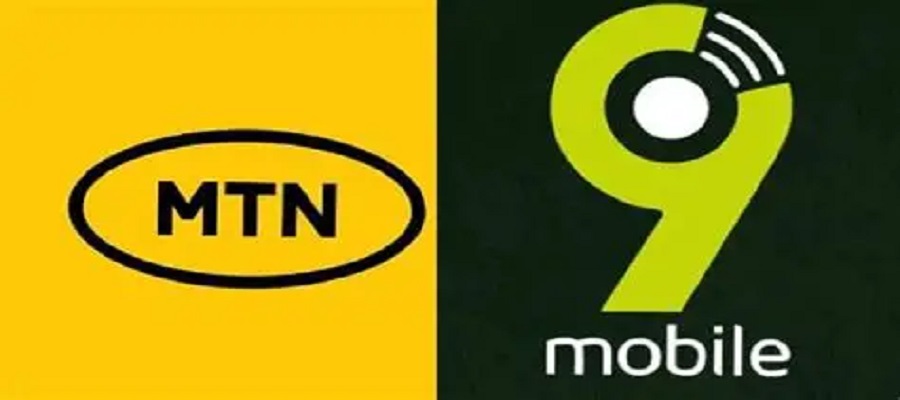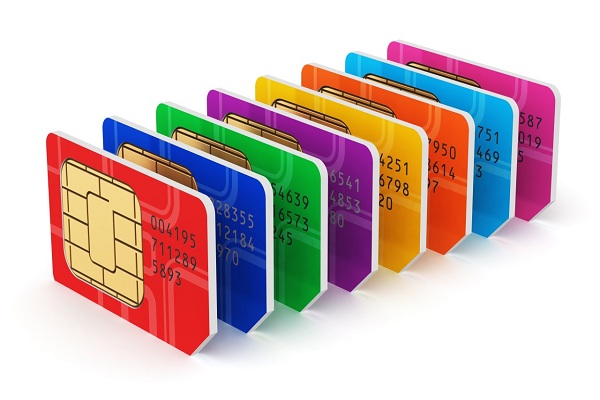Telecom
Gartner Expects 5G to Trigger Smartphone Market Revival
While the sale of smartphones globally is expected to decline by 3.2% in 2019, the share of 5G-capable phones will increase from 10% in 2020 to 56% by 2023 and sought-after 5G performance features will encourage an upswing in the market.
This is according to the latest device forecast from Gartner, which described the smartphone decline as “the worst decline the category has seen.”
In August 2019 Gartner announced that global sales of smartphones to end users declined 1.7% in the second quarter of 2019, totalling 368 million units.
“Demand for high-end smartphones has slowed at a greater rate than demand for midrange and low-end smartphones,” said Anshul Gupta, senior research director at Gartner. “To try to boost smartphone replacements, we’ve seen manufacturers bringing premium features such as multi-lens front/back cameras, bezel-less displays and large batteries from their flagship smartphones into lower-priced models.”

The firm estimates there are over 5 billion mobile phones used around the world and after years of growth, the market has reached a tipping point.
“This is due to consumers holding onto their phones longer, given the limited attraction of new technology,” said Ranjit Atwal, senior research director at Gartner.
According to Gartner, the lifetimes of premium phones – for example, Android and iOS phones – continue to extend through 2019.
Their quality and technology features have improved significantly and have reached a level today where users see high value in their device beyond a two-year time frame, the company adds.
But consumers have reached a threshold for new technology and applications.
Atwal adds: “Unless the devices provide significant new utility, efficiency or experiences, users do not necessarily want to upgrade their phones.”
At the same time, major players in the market are eyeing the opportunity in 5G connectivity technology roll out, Gartner says, with the market expected to return to growth at 2.9% in 2020.
“The major players in the mobile phone market will look for 5G connectivity technology to boost replacements of existing 4G phones,” said Atwal. “Still, less than half of communications service providers (CSPs) globally will have launched a commercial 5G network in the next five years.”
“More than a dozen service providers have launched commercial 5G services in a handful of markets so far,” said Atwal. “To ensure smartphone sales pick up again, mobile providers are starting to emphasise 5G performance features, like faster speeds, improved network availability and enhanced security. As soon as providers better align their early performance claims for 5G with concrete plans, we expect to see 5G phones account for more than half of phone sales in 2023.”
As a result of the impact of 5G, the smartphone market is expected to return to growth at 2.9% in 2020, he said.
Gartner also references its recent IOT forecast which showed that the 5G endpoint installed base will grow 14-fold between 2020 and 2023, from 3.5 million units to 48.6 million units. By 2028, the installed base will reach 324.1 million units, although 5G will make up only 2.1% of the overall IOT endpoints.
“The inclusion of 5G technology may even be incorporated into premium ultra-mobile devices in 2020 to make them more marketable to customers,” said Atwal.
Telecom
NCC, REA Move to Power Telecoms with Renewable Energy

Nigerian Communications Commission (NCC) and Rural Electrification Agency (REA) have teamed up to develop an initiative that will reduce the $350 million annual spending on diesel by telecom operators in Nigeria.

According to a press statement by Nnenna Ukoha, acting had of Public Affairs, NCC, this collaboration will focus on deploying renewable energy solutions to support telecom infrastructure, particularly in rural and underserved areas.
To that end, the two agencies have inaugurated what they called NCC–REA Collaboration Committee, aimed at deploying renewable energy solutions to power telecom infrastructure across the country.
According to the State of Africa’s Infrastructure Report 2025 by the Africa Finance Corporation, telecom operators in Nigeria consume more than 40 million litres of diesel every month, costing them over $350 million annually.
The statement read, “The Nigerian Communications Commission has formally inaugurated the NCC–REA Collaboration Committee, marking a pivotal step towards advancing Nigeria’s digital and energy inclusion objectives by developing modalities for the deployment of renewable energy to support telecom infrastructure in Nigeria.”
The inauguration ceremony, held on Friday, at the NCC Headquarters in Abuja, was presided over by Dr Aminu Maida, executive vice chairman and chief executive officer, NCC.
Maida was joined by Abba Aliyu, managing director of the REA, along with senior executives and committee members from both organisations.
Speaking at the event, Maida described the collaboration as a timely and strategic alignment of national priorities.
He noted that bridging the connectivity and power gaps in rural areas remains critical for Nigeria’s growth and development.
He highlighted that the demand for digital services and connected communities creates an opportunity for renewable energy to play a crucial role.
Maida further emphasised that the partnership goes beyond infrastructure; it is aimed at driving inclusion, reducing inequalities, and fostering shared prosperity.
“Whether it is powering a base station or enabling a child to access digital learning, this partnership has the potential to transform realities and bring opportunity closer to the people.
“This initiative is about more than infrastructure, it is about driving inclusion, bridging inequalities and creating the conditions for shared prosperity,” he was quoted in the statement.
He also noted that the initiative aligns with President Bola Tinubu’s Renewed Hope Agenda, which aims to ensure no community is left behind in Nigeria’s energy and digital transformation.
Aliyu, representing REA, expressed confidence in the transformative potential of the collaboration.
“This partnership will unlock sustainable development opportunities for millions of Nigerians, especially those in areas lacking traditional infrastructure,” he said.
He further emphasised that the collaboration would address both energy and connectivity gaps, benefiting those who are currently underserved.
The newly established NCC-REA Collaboration Committee will work to co-develop and implement integrated solutions that leverage renewable energy to power telecom sites.
The statement noted that the committee will also focus on sharing geospatial data to improve planning, aligning funding frameworks, and tracking the socio-economic impact of the project through clear performance indicators.
Telecom
NCC Approves MTN, 9Mobile Roaming Collaboration Deal

MTN Nigeria Communications Plc has announced the execution of a national roaming agreement with Emerging Markets Telecommunications Services Limited (9Mobile), a move that signals a major milestone in Nigeria’s telecommunications landscape.

The Nigerian Communications Commission (NCC), the industry’s regulatory authority, has approved the three-year deal, which allows 9Mobile subscribers to roam seamlessly on MTN Nigeria’s extensive network infrastructure across the country.
The agreement, effective immediately, will significantly enhance connectivity and user experience for 9Mobile customers, particularly in areas where its network coverage is limited.
By leveraging MTN’s expansive infrastructure, 9Mobile can now offer improved service reach and reliability, without duplicating capital-intensive investments in network deployment.
In a notice to the Nigerian Exchange Limited and the investing public, MTN Nigeria described the arrangement as a strategic collaboration that underscores its leadership in fostering innovation, industry cooperation, and operational efficiency.
The company emphasized that the initiative aligns with the NCC’s broader objective of promoting infrastructure sharing to improve telecommunications services nationwide.
“This agreement represents a significant step in our commitment to driving industry collaboration, improving customer experience, and supporting the NCC’s vision of a fully connected Nigeria,” said Karl Toriola, chief executive officer, MTN Nigeria.
“Delivering the scale required for telecommunications services in Nigeria requires strong collaboration between the private sector, public sector, and long-term investors. This agreement demonstrates what we can achieve when we collaborate, and we are delighted to announce it today after months of groundwork.”The national roaming deal enables subscribers from 9Mobile to access voice and data services through MTN’s network in areas where the former lacks adequate coverage.
This marks the first such large-scale, cross-network roaming arrangement between two major operators in Nigeria, setting a precedent for future cooperative efforts in the telecom industry.
MTN Nigeria highlighted that the agreement contributes to more effective use of telecommunications resources, reduces infrastructure duplication, and accelerates the expansion of mobile broadband access across underserved regions.
It also supports both operators’ sustainability objectives by maximizing existing investments and reducing the environmental impact of deploying overlapping network facilities.
“This strategic collaboration is yet another first in the country by MTN Nigeria and marks a significant milestone for the sustainability of the telecommunications industry,” the company stated.
“By enabling national roaming, MTN Nigeria is contributing to a more effective use of telecommunications resources and accelerating efforts to expand connectivity across the country.”
The agreement is expected to benefit not just subscribers and operators but also regulators and investors who have consistently advocated for policies that promote shared infrastructure and efficient capital utilization in Nigeria’s digital economy.
Uto Ukpanah, company secretary, MTN Nigeria, affirmed the company’s ongoing dedication to initiatives that create shared value.
“MTN remains committed to fostering innovation and partnerships that create sustainable value for all stakeholders while promoting digital and financial inclusion nationwide,” she noted.
With the successful rollout of this agreement, the telecoms industry is expected to see improved service delivery and expanded access to quality mobile services, especially in rural and semi-urban communities. The collaboration sets a benchmark for future inter-operator partnerships and reinforces the importance of regulatory support in advancing national connectivity goals.
Telecom
Don’t Visit Telecom Centers for Now — ALTON Warns of SIM Service Downtime

Association of Licensed Telecommunications Operators of Nigeria (ALTON) has announced a temporary disruption in SIM-related services across all mobile networks in the country.

The disruption, according to a statement on Wednesday, follows a directive from the National Identity Management Commission (NIMC), mandating mobile network operators (MNOs) to migrate to a new identity verification platform.
ALTON said the transition had triggered unforeseen technical challenges, affecting services such as SIM registration, replacement, and mobile number portability.
“While the new platform is intended to enhance the integrity and efficiency of identity management in Nigeria, unfortunately, the transition has temporarily impacted service delivery,” the association stated.
It added that MNOs would not be able to support SIM swaps, new activations, and related services until the issues are resolved.
ALTON noted that its members are working closely with the Nigerian Communications Commission (NCC), NIMC, and other stakeholders to restore normalcy.
The association appealed for public understanding and urged subscribers to delay visits to service centers for SIM-related matters.
“We sincerely apologise for the inconvenience and will continue to provide timely updates,” the statement read.
ALTON reaffirmed its commitment to delivering secure and quality telecommunications services to Nigerians.

 E-Financial3 days ago
E-Financial3 days agoAccess ARM Pensions Advocates Ways to Boost Civil Servants’ Retirement

 Telecom3 days ago
Telecom3 days agoMTN Nigeria Launches “Mega Billion Promo” to Reward Customer Loyalty and Drive Financial Inclusion

 E-Business3 days ago
E-Business3 days agoFirm Warns as Social Media Scams Put Users’ Data at Risk

 Telecom2 days ago
Telecom2 days agoAVEVA Highlights Climate Impact Gains in 2024 Sustainability Report

 General News2 days ago
General News2 days agoAfCFTA Opens Opportunity for Logistics Sector

 E-Business3 days ago
E-Business3 days agoNigeria Ranks 3rd in Africa for Ransomware Threats –INTERPOL

 Telecom2 days ago
Telecom2 days agoALTON Explains SIM-related Services Disruption Across Mobile Networks

 General News3 days ago
General News3 days agoNELFund Warns Students Against Fake Loan Portal



























